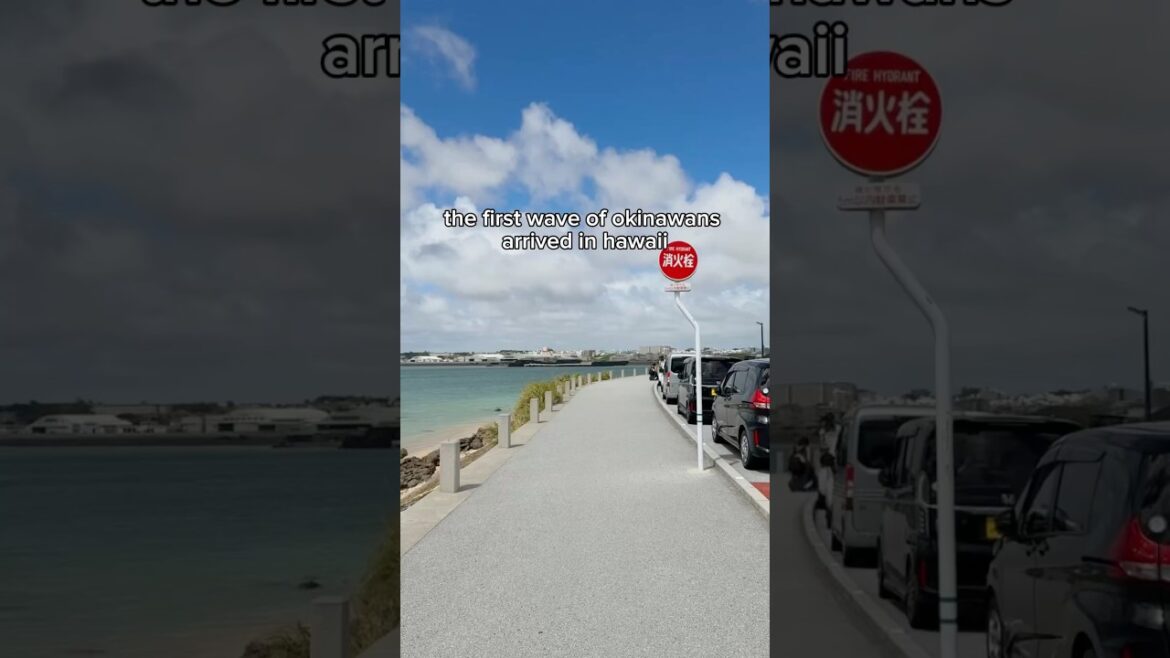pigs to the rescue 🇯🇵🐷
The first wave of Okinawans arrived in Hawaii to work on sugar plantations in 1900, decades after the first Japanese immigrants. It was a tough beginning. They were whipped to work harder and continue to experience discrimination by their mainland Japanese brothers. They made fun of Okinowan’s dark skin, big eyes, thick hair, traditional tattoos, language, and for raising pigs. Pork is a big part of the Okinowan diet. Many families raised pigs as a side business, which was seen as low class because it was smelly and dirty work. Okinowans ended up dominating the pig farming business in Hawaii, turning it into a multi-million dollar industry during World War II by serving food to servicemen. Okinowans would stress that it was the Japanese who started the war, not them. Okinawa was destroyed anyway. Only 2,000 pigs out of 120,000 survived the battle. Concerned about food shortage, Okinawans in Hawaii raised more than $600,000 to ship 550 pigs to Okinawa. This act of kindness cemented the bond between the two islands.
a life saving gift 🙏 #okinawa #japantravel #worldwar2


16 Comments
Love your vids, thank you for educating in these shorts!
oink
the japanese imperial propaganda was so powerful that even today, most people here in hawaii don't grasp the significance of okinawa's plight, and how they differ from the japanese. naturally, with so many serviceman stationed here, and so many generations of japanese, the sentiment in hawaii had always been either very pro-japanese or, as with my grandfather who was a young crane mechanic at pearl harbor that day, staunchly anti-japanese. today everything's chill, and has been for awhile, but to give you an idea of how ignorant most of us are: i've lived in this town for 13 years, and didn't know there was an okinawan cultural center…6 minutes up the road…in a shopping center i visit frequently.
🐖🤝🏻🏝️
furthermore: okinawan identity was so stifled at the time, most were afraid to openly identify themselves as okinawan, for fear of oppression from japanese loyalists in hawaii. after the war, japan's standing in the world improved over time, and for generations, many okinawans simply identified as japanese, because people in hawaii, and america in general, didn't know the difference. there are people who grew up not knowing they were okinawan, until a parent or grandparent passed away, and the past they had kept hidden was revealed.
I really love and appreciate all the information you provide in your content, but it might be time for a different background song lol
They came to Peru in the 1880s and build our railroads. They are a big part of our culture
👏🏼👏🏼👏🏼
The lack of public transportation system might be a blessing in disguise as it somehow limits the accessibility for tourism, and overtourism will change the dynamics of culture and economy in Okinawa. Okinawans are so get used to the lifestyle they have today except the US military part.
But I might be wrong though, and they might want to build a vibrant commercialised city, create jobs and stimulate the economy altogether in Okinawa.
Beautiful
Love the way you travel
"Big eyes" …
Me and some of my friends are Okinawans from Hawaii. We like to joke and say we’re not real Japanese. 😂
Your recent Okinawa content has me all emotional. I’m Puerto Rican and got placed in Ginowan-shi for my study abroad program. The history of colonialism, imperialism, and cultural resilience shared between our islands is uncanny despite being so far apart and unique—the same can definitely be said for Hawaii, too. If you have time, can you cover the Himeyuri nurse/student corps in more detail? They have a memorial in Itoman and their story has always stayed with me.
I was chatting in a discord server and we were talking about indigenous of Canada and one white Canadian were stressing about the importance of acknowledging our mistakes etc when this Japanese American said, "it happened in the past anyway why would you acknowledged it. Just let it go."
Me, an Indonesian and my friend, a Filipino raised hell against him hahahahah Japanese people really don't care about their war crimes 🙃
Your voice❤❤❤